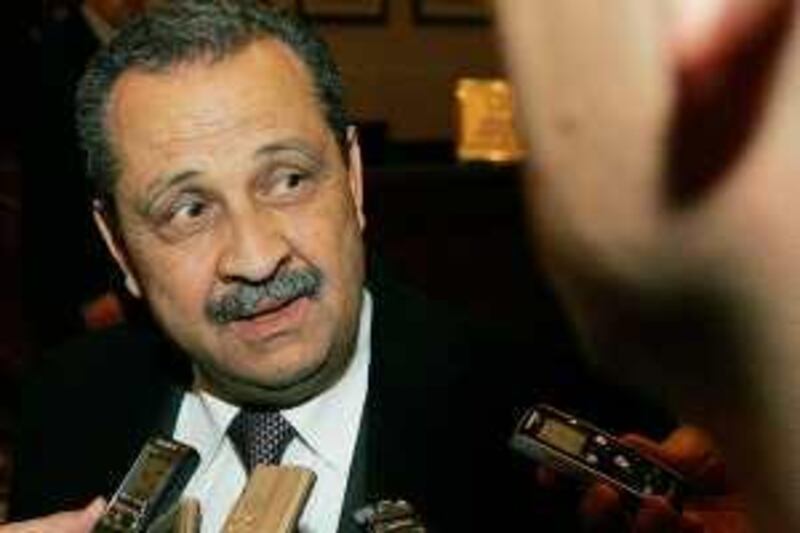VIENNA // Oil prices could rise sharply within three months if OPEC sticks to its supply curbs, the International Energy Agency said yesterday. The forecast by the IEA, which represents 28 industrialised nations, lent weight to those in OPEC pushing for a freeze in the official output ceiling at a conference tomorrow.
Some members have been calling for deeper cuts to force world oil prices back above US$50 (Dh183.66) a barrel. But David Fyfe, the editor of the IEA's monthly oil market report, said OPEC's existing limits already took into account a collapse in oil demand this year. "Even with a fall in global demand of 1.2 million barrels per day (bpd) in 2009, the existing agreement if complied with would tighten the market sharply from the late second quarter onwards," said Mr Fyfe in a telephone interview.
The worsening global economic outlook has cut deeply into demand for raw materials across the board, from oil to steel and copper. OPEC, which controls about two-thirds of the world's exported oil, has responded with a series of supply cuts that have stabilised the price at about $45 a barrel, one third of its level last July. Crude oil futures for April delivery declined 20 cents, or 0.4 per cent, to $46.83 a barrel in early trading on the New York Mercantile Exchange yesterday.
The IEA updated its forecasts in a report showing global oil demand falling to 84.4 million bpd this year. Only six months ago, the agency was warning of a structural shortage of oil supply in world markets, feeding fears of an impending energy crisis. "The demand collapse has been staggering, based on the whirlwind nature of the slump in the global economy," the IEA said. OPEC has agreed to cuts of 4.2 million bpd for its 11 members bound by quotas, excluding Iraq. So far they have achieved 80 per cent compliance.
Ministers have issued contrasting views on the group's likely course of action tomorrow, with Iraq and Venezuela both leaning towards another reduction in the ceiling. But Saudi Arabia, the most influential member, and Qatar have signalled that better compliance with the existing cuts would be enough to balance the world market this year. Nine of 14 analysts polled by Reuters expected no change in OPEC's 24.845 million bpd ceiling at the meeting, to be held at OPEC headquarters in Vienna.
The IEA, which tends to favour lower prices than OPEC, said global oil inventories would fall over the second half of the year if exporters reached their target output by April. Storage tanks in developed nations currently hold enough oil to cover 58.7 days of demand in the future, far above the 52 days considered comfortable by OPEC. "We see inventories tracking down through the five-year range if OPEC gets to its target by the end of March," Mr Fyfe said.
According to OPEC's own forecast, demand for its oil this year is likely to average 29.22 million bpd, slightly above the 28.71 million bpd produced in January. The IEA has pointed to the beneficial effects of low oil prices on the global economy, comparing the recent fall in prices to a $1 trillion global stimulus package. But the UAE, among other OPEC members, has insisted that higher prices are required in the long run to finance new discoveries and make alternative energy viable.
OPEC has no official price target, but King Abdullah of Saudi Arabia, the most influential member, said $75 a barrel was a "fair price" last December. Iran and Angola, which holds the presidency of OPEC, have both called for producers outside the group to join in moderating output. Production from rival producers actually fell last year, according to the IEA report, and output from these nations is expected to be flat in 2009. Problems in offshore fields in Azerbaijan were partly blamed for the IEA revising its forecast for non-OPEC supply growth down by 380,000 bpd from the previous month.
OPEC is still forecasting a slight rise in non-OPEC supply this year. tashby@thenational.ae





